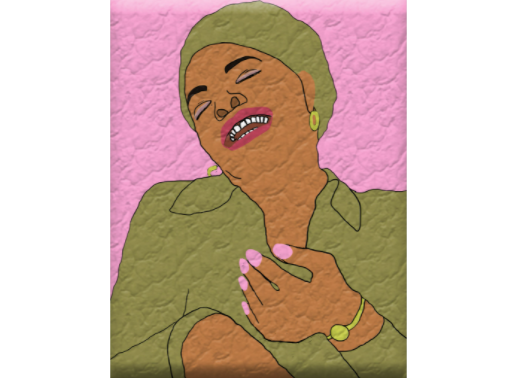
Illustration & Article by Keila Perez, Staff Writer

Society recognizes many people who made an impact during the Civil Rights Movement in fighting to get equality for everyone. Many have been recognized for pushing through changes while suffering mistreatment and other injustices. There were also many willing to listen and willing to help.
The names most often brought up for making a significant impact for African Americans are Martin Luther King Jr, Rosa Parks, Harriet Tubman, Malcolm X, Sojourner Truth, and W.E.B Du Bois as well as others. But we shouldn’t forget other people who made an impact through their writing, and one of them was American author, poet and civil rights activist Maya Angelou.
Marguerite Annie Johnson, otherwise known as Maya Angelou, was born April 4, 1928 in St. Louis Missouri. Angelou became inspired to write when she joined the Harlem Writers Guild in the late 1950s and met James Baldwin and other important writers. During that time, Angelou had the opportunity to hear Martin Luther King’s message. Inspired by King’s speech, she decided to join the Civil Rights Movement.
Angelou also became friends with Malcolm X, whom she remained close with until his 1965 assassination. Three years later, she helped King organize the Poor People’s March when the civil rights leader decided to help the striking sanitation workers in Memphis.
In 1969, “I Know Why the Caged Bird Sings” was published. Angelou made history with the first nonfiction bestseller by an African American woman. In 1970, the Caged Bird was nominated for a National Book Award and remained on The New York Times paperback bestseller list for two years. In the autobiography of Angelou’s early years, Angelou uses a bird as an extended metaphor to convey the frustration and suffering of those who are oppressed. The caged bird rails against its imprisonment, and in spite of its fear and rage, it sings of freedom.
Angelou didn’t stop there, she continued to write poetry throughout the years that made many impacts: “Just Give Me a Cool Drink of Water ‘fore I Diiie” (1971), “And Still I Rise” (1978), “Phenomenal Women” (1995), and many more. She became the first African American Woman and second poet in history to read a poem at a presidential inauguration. She read “On the Pulse of Morning” at President Bill Clinton’s inauguration. Over time, Angelou also won many awards; three Grammy Awards (1993,1995 and 2002); National Medal of Arts (2000), awarded the Spingarn Medal by the National Association for the Advancement of Colored People (1994) and the Presidential Medal of Freedom (2010). Angelou passed away May 28, 2014, but her legacy lives on through her civil rights work and writing, as she still inspires others.
